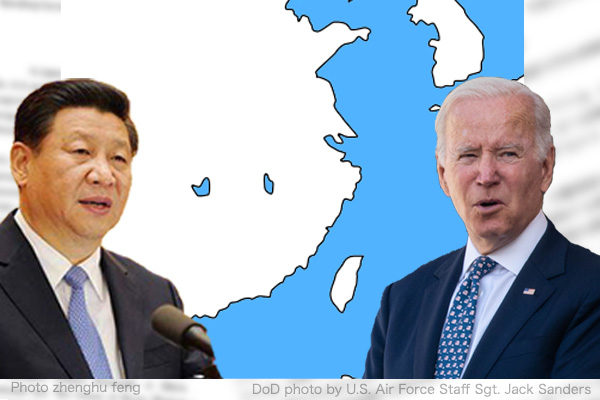The United States and China have been jockeying over U.S. House Speaker Nancy Pelosi’s planned visit to Taiwan. In a two-hour call with U.S. President Joe Biden on July 28, Chinese President Xi Jinping reportedly threatened to take a countermeasure against the visit by saying, “Those who play with fire will perish by it.” The U.S. and Chinese leaders apparently remained far apart over the issue.
Concern over U.S.-China military aircraft collision
China may be unable to overlook a visit to Taiwan by the House speaker who is second after the vice president in line to succeed the president. Xi is also required to demonstrate a strong attitude against the planned visit toward his election as general secretary of the Chinese Communist Party for the third term later this year. On July 26, a Chinese Defense Ministry spokesman said the People’s Liberation Army would not sit idle if Pelosi visited Taiwan and that the PLA would take a strong measure to block foreign intervention and Taiwan’s independence attempt. The indication of a potential military action has become a matter of big concern to Washington.
U.S. military as part of the executive branch of government has no authority to block the House speaker of the legislative branch from visiting Taiwan. On Pelosi’s planned visit to Taiwan, however, Biden said on July 20, “The military thinks it’s not a good idea right now.” The remark might have reflected the military’s concern over an accidental collision between a Chinese military aircraft and a U.S. miliary plane with Pelosi aboard. Biden might have attempted to indicate his hope to avoid any unnecessary collision while giving consideration to lawmakers who asserted that if Pelosi’s visit to Taiwan was aborted, the U.S. might be viewed as succumbing to Chinese pressure.
Problems not limited to Pelosi’s visit
On July 29, Pelosi only said she was eager for Congress to be part of President Biden's idea to place emphasis on the Indo-Pacific. On the same day, John Kirby. Coordinator for Strategic Communications at the National Security Council in The White House, said no chauvinistic rhetoric from China was necessary because there was no change in the U.S. One China policy. Kirby also said there was no specific sign of Chinese military movements, indicating that Pelosi’s visit to Taiwan was likelier.
Pelosi’s Taiwan visit may demonstrate the U.S.’ engagement with Taiwan and increase Taiwan’s confidence in the U.S. However, China may heighten its rivalry with the U.S. and beef up capabilities to invade Taiwan.
Issues are not limited to the House speaker’s Taiwan visit. With or without Pelosi’s visits, the Taiwan Strait crisis may be heading towards an uncontrollable breaking point as time passes. The U.S. should strengthen its China strategy to deter the crisis from reaching such point. At the same time, effort to deter a Taiwan Strait crisis is required through Japan-U.S., Japan-U.S.-Australia, Japan-U.S.-Taiwan and other multilateral cooperation.
Kiyofumi Iwata is a councilor at the Japan Institute for National Fundamentals. Formerly, he served as Chief of Staff of the Japan Ground Self-Defense Force.


